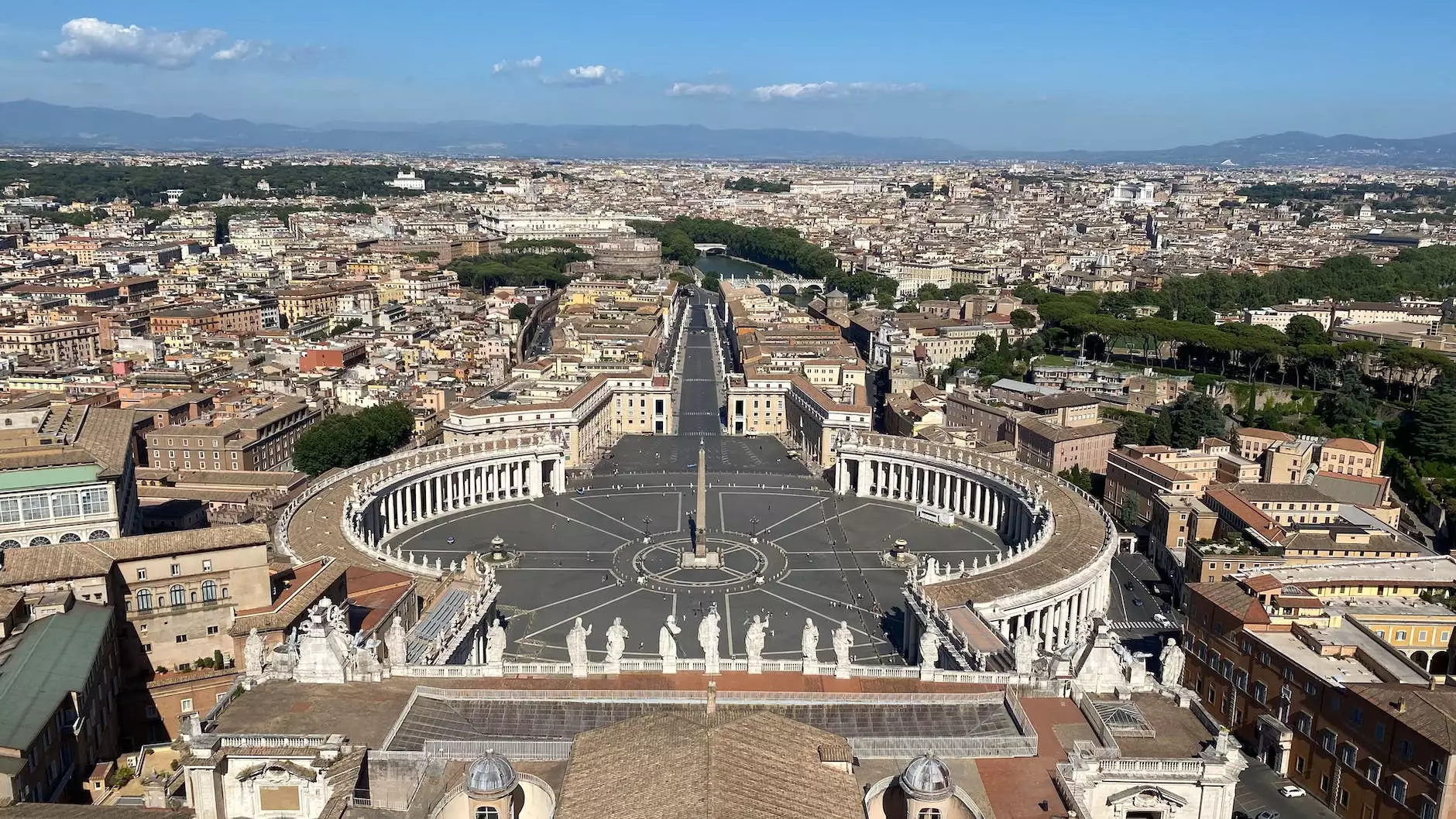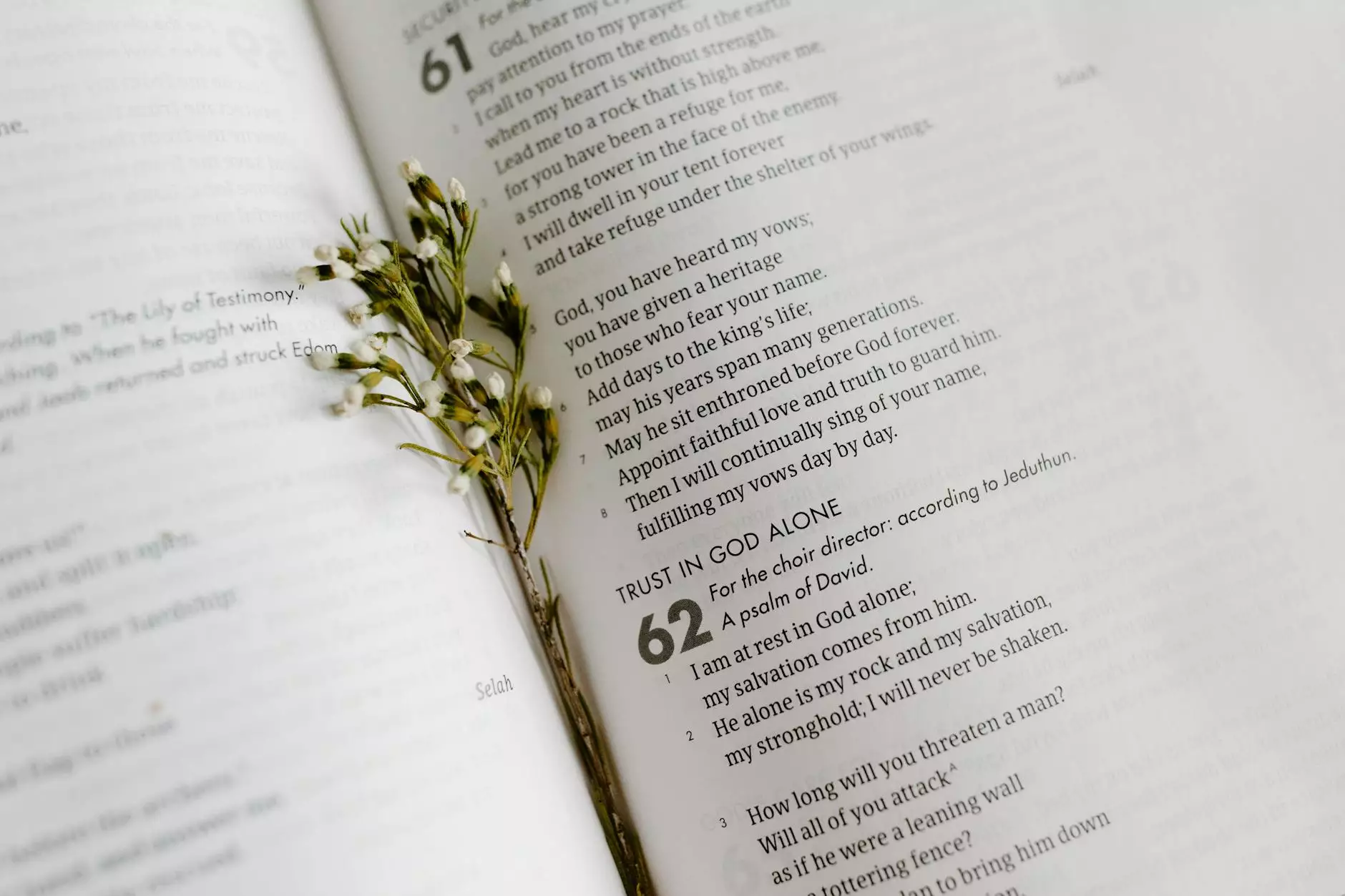John 1:19-23
Sermon Audio
Introduction
Welcome to St Mark's United Methodist Church, where we delve into the teachings of the Gospel of John. In this sermon series, we explore the transformative power of faith, focusing on John 1:19-23. Join us on this spiritual journey as we unpack the profound significance of this passage and its relevance to our lives today.
Understanding John 1:19-23
John 1:19-23 offers a glimpse into the ministry of John the Baptist, a key figure in the New Testament. This passage highlights the encounter between John and a delegation of priests and Levites who came from Jerusalem to question him about his identity. Let's dive deeper into the context and symbolic meanings within this passage.
The Context
During this period, John the Baptist had gained a significant following as a prophet and preacher, drawing crowds who sought baptism and spiritual guidance. His ministry was characterized by a call to repentance and the proclamation of the coming Messiah. The religious leaders of the time were curious about John's role and sought to understand his authority.
The Questions
As the priests and Levites approached John, they posed a series of questions that asked who he was. The questioning reflects their suspicion and desire to identify if John was a prophet, the Messiah, or the reincarnation of a significant figure from the past. John, however, humbly denies these identities and redirects their attention towards the true significance of his ministry.
Key Themes in John 1:19-23
Humility
John the Baptist's response to the delegation of priests and Levites emphasizes humility. Despite the opportunity to elevate his status, John recognizes the importance of staying grounded in his mission to prepare the way for the Messiah. His humility serves as a powerful example of selflessness and devotion to God's greater plan.
Baptism as a Symbol
John's baptism, mentioned in this passage, becomes a central component of his ministry. The act of baptism symbolizes repentance and serves as a precursor to the transformative power of Jesus' coming. It is a visible expression of one's commitment to turn away from sin and embrace the abundant life offered through faith in Jesus Christ.
Prophetic Voice
John the Baptist, as a prophet, represents a bridge between the Old and New Testaments. His ministry prepares the way for Jesus' arrival and offers a prophetic voice that calls people to righteousness and spiritual renewal. This passage highlights the importance of listening to prophetic voices in our lives and heeding their messages.
Application in Today's Life
John 1:19-23 may have been written centuries ago, but its message continues to resonate deeply within our lives today. The themes of humility, baptism, and the prophetic voice hold significant relevance for our modern faith journey.
Embracing Humility
In a world that often prioritizes self-promotion and personal success, John's humility serves as a powerful reminder of the importance of remaining humble in our endeavors. By embracing humility, we can shift our focus from self to service, allowing God's transformative work to shine through our lives.
Embracing Baptism
Baptism, as discussed in this passage, signifies a recommitment to our faith and a turning away from sin. By embracing the symbolic act of baptism, we align ourselves with the redemptive work of Jesus Christ and open ourselves to experience His grace and love in our daily lives.
Listening to Prophetic Voices
John's prophetic voice speaks to us even today. Just as the religious leaders questioned John's identity, we may also encounter doubts and uncertainties in our faith journey. By actively listening to the prophetic voices around us and discerning God's wisdom, we can gain clarity and guidance along our spiritual path.
Conclusion
As we engage with John 1:19-23 at St Mark's United Methodist Church, we find a rich and profound passage that invites us to reflect on the themes of humility, baptism, and the prophetic voice. May our exploration of this passage deepen our understanding of God's plan for our lives and inspire us to live out our faith authentically and wholeheartedly.










